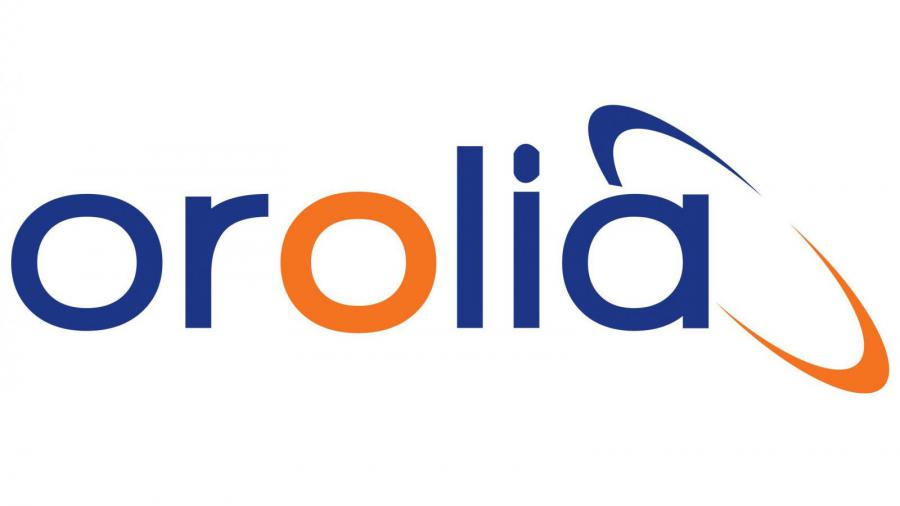OAPP introductory webinar featuring the Orolia Skydel GNSS simulation engine, scheduled for December 14
– Thomas Hobiger, University of Stuttgart
Rochester, New York, United States of America, November 30, 2021 /EINPresswire.com/ – Orolia, the world leader in sustainable positioning, navigation and synchronization (PNT) solutions, has created Orolia Academic Partnership Program (OAPP) to build a community to help promote global PNT research and collaboration in the best engineering schools and research institutions. Orolia will provide qualified institutions with access to those of the company signature Skydel Simulation of Global Navigation Satellite System (GNSS). Engine, the most advanced tool for testing and simulation of GNSS and PNT in the industry.
Supporting its vision for an interactive community focused on the future of GNSS and PNT research and education, Orolia has created online forum (learn.orolia.com), which allows users to interact with other Orolia users and experts, share information, ask questions, and receive feedback. Numerous white papers, application notes and detailed technical documents are also available.
Skydel is an innovative GNSS simulation platform that uses software, advanced graphics cards (GPUs) and software-defined radio stations (SDRs). Users can create custom alerts and connect to other systems and devices (such as sensors, IMUs, etc.) through Orolia’s open source plug-in capabilities. Skydel also includes the ability to generate and test GNSS / GPS vulnerabilities with integrated interference, jamming and spoofing capabilities. Because Skydel uses commercially available hardware (COTS), this is the only GNSS simulation solution that can work independently of simulation vendor hardware.
“The versatility and capabilities of the Skydel platform allow users to perform on-site, lab and home testing – whether you’re using a turnkey system provided by Orolia, our partners, or through your own hardware,” said Lisa Purdue, CEO. PNT testing and simulation in Orolia. “Unlike other GNSS simulators, Skydel is the only professional platform offering a plugin architecture that provides real-time and direct access to the main simulation engine. This plugin architecture unlocks a new range of applications and customizations that are impossible to imagine with traditional tools. “
Perdue added that the plugins can be shared with the open source community to take full advantage of the shared ecosystem. “We believe that this modern architecture is the ideal approach to support academic research, as well as allowing users to go further in system integration and personalization,” she said.
More than 40 schools located in North America, Europe, South / Central America and the Asia-Pacific region are currently enrolled in the OAPP, including the Institute of Navigation (INS) at the University of Stuttgart in Germany, where Skydel fuels pioneering student research.
“Skydel allows our students to perform complex field tests such as simulating laboratory scenarios in real time and using radio hardware to send signals to commercial or proprietary receivers,” said Professor Thomas Hobiger of INS. “We can compare our navigation solutions with the simulated trajectories, while showing the absolute accuracy of our algorithms, which means a deviation from the actual position.”
Hobiger added that INS wants graduates to be well prepared for industry demands and future innovation. According to a study by Statista users, the installed base of GNSS devices worldwide will amount to 6.4 billion units in 2019. The Asia-Pacific region is the leader, representing 3.4 billion GNSS devices, and forecasts predict that this will increase up to 5.1 billion devices by 2029
“OAPP members can contribute to this community to share their achievements, upload code, or make their work available to others in our GitHub repository,” said Perdue. “The goal is to ensure that members have access to the ideas and experiences of other users around the world. “The need for continuous and reliable GNSS signals, as well as methods to protect these signals from jamming, tampering or conversion, is growing exponentially worldwide. These are the main reasons why engineering students need to gain valuable experience using a platform that provides accurate PNT simulation and measurement.
The webinar is scheduled
Orolia will host a webinar on December 14 at 11:00 am EST to present OAPP and answer questions about the program and Skydel. To register, please visit: https://www.orolia.com/event/orolia-academic-partnership-program-launch/
About Orolia
Orolia is a world leader in sustainable positioning, navigation and synchronization (R-PNT) solutions that improve the reliability, performance and safety of critical, remote or high-risk operations, even in GNSS-denied environments. Orolia provides virtually flawless GNSS and PNT solutions for military and commercial applications worldwide and is widely recognized for best-in-class customer service and innovation. www.orolia.com
Charles Jones
Orolia
charles.jones@orolia.com
![]()


